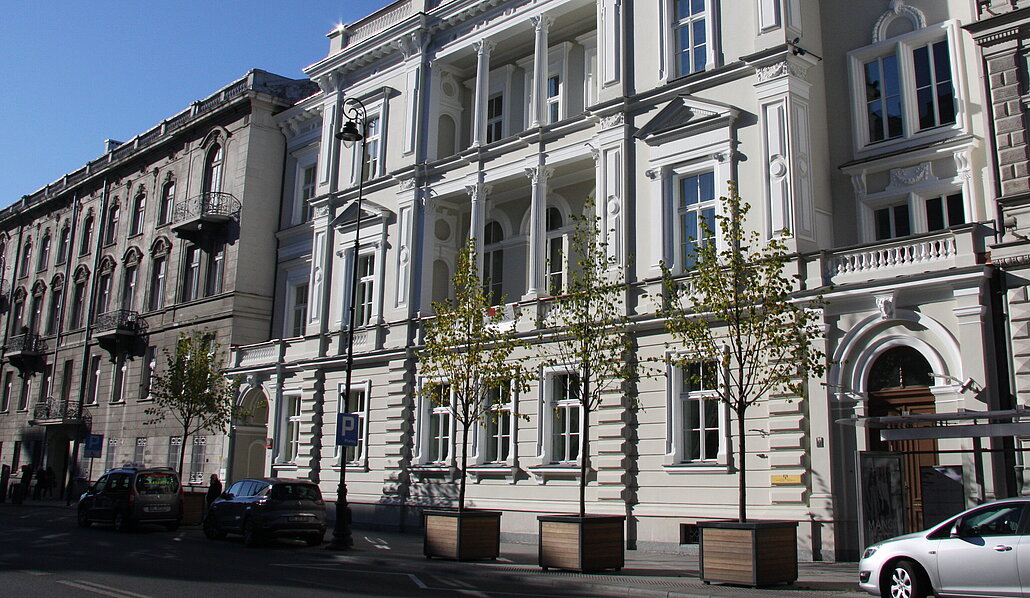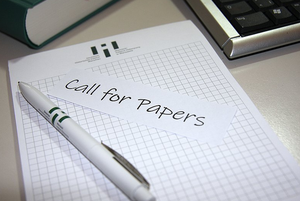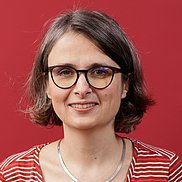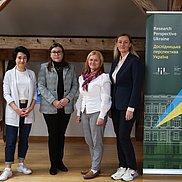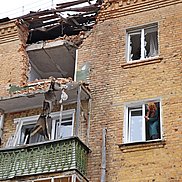The Politics and Poetics of Evidence. The Soviet Documentation of Nazi Crimes, the Myth of the Great Patriotic War, and their Legacies
October 12th – 13th, 2023
Archives generate knowledge, archives generate power. After the defeat of Nazi Germany, the Soviet Union used documents to establish its official narrative of the Great Patriotic War and to bolster its political hegemony in East-Central Europe. These documents still have an impact, they are knowledge, do exist in the form of documentary editions and archival collections. Their traces can be found in the still popular novels and movies of that time. The conference, thus, wants to focus on the history of the creation and the exploitation of these source collections in the postwar and the post-Soviet period.
Already in 1941, the Soviet regime began to collect and compile evidence of Nazi crimes and the cruelty of the Nazi regime. Various institutions were involved in the process of collecting (and sorting) – from the NKVD to the state archives, from the “State Special Commission for the Investigation of Nazi Crimes” to the institutes of the Academy of Sciences and local museums. These institutions gathered an immense number of documents, including captured written material (as well as photographs and film footage) from the Wehrmacht and local occupation authorities. After Germany’s surrender, the Soviet Military Administration systematically searched the archives of the ‘liberated’ territories for files that reflected the crimes of the Wehrmacht and the SS as well as the political structure of the Nazi regime. The burden of proof provided by the Soviet side was overwhelming at the Nuremberg Trials. What of the many “trophy documents” was not displayed at Nuremberg, became secret knowledge and some of it was used as a weapon in the Cold War. East-Central European states and societies, however, developed their specific reading of the Soviet struggle against the criminal Nazi regime, with changing balances between liberation or occupation narratives. The discussion continued after the collapse of the USSR and the opening of the archives. The narrative of a Soviet war of liberation in Europe is still convincing in today’s Russia, and not only there.
However, the conference organized on behalf of the Max Weber Foundation seeks not only to reconstruct the formation and instrumentalization of Soviet knowledge on Nazi crimes. It also aims to understand and to deconstruct the very poetics of the documentary evidence and the politics of its selection, which were deployed to convince the people inside and outside of the postwar USSR. Besides memory studies, research has addressed this powerful link between the documentation of war crimes and the poetics of evidence in a rather unsystematic way. If archives exercise power, if collections of written, photographic, and filmic materials create veracity by virtue of their authenticity, represent a form of ‘inner truth’, the question arises as to what role the archives of knowledge created under Soviet rule played in the constitution of postwar societies and the postwar order in Europe.
The conference aims to explore these questions. For this purpose, it wants to engage the different fields of historical research as well as cultural studies in dialogue: contemporary historical research on World War II and war crimes, research on postwar terror, Sovietization, and national movements in East-Central Europe, history of postwar justice, Cold War history, research on memory politics and memory studies, and literary and film history of the Soviet postwar period. The conference intends to link areas that make empirical use of the archives of knowledge generated in the context of the Second World war, without necessarily focusing on the history of their creation, exposing the narratives embedded in them, and deconstructing the aesthetics generated by them.
The conference encourages contributions that shed light on the history of the compilation of documents on Nazi crimes, their use and abuse: in criminal trials, in show trials, in the public sphere (at exhibitions, in publications, in the press), in education, in literature and in film, as well as in historiography and Cold War diplomacy. Contributions that explore how the ambiguity of the document collections was kept in check by the regime and how the polyphony of the documents was silenced will be highly welcome. In particular, the conference would be profiting from papers that reflect our perspective on the totalitarian regimes of the 20th century and the postwar period in Europe from a theoretical and epistemological point of view, thus contributing to a better understanding of their impact on our present.
The conference will be held in the Martynas Mažvydas National Library of Lithuania in Vilnius from October 12th to October 13th, 2023 (on-site only). As organizers, we plan to propose a selection of revised papers presented at the conference to an international peer-reviewed journal as a special issue.
Please, send an abstract of 300 to 500 words and a short CV by April 21th, 2023 to walter.sperling@mws-osteuras.de.
The conference will be able to offer a modest reimbursement for travel and accommodation to invited participants (presenters and discussants). Please contact us if you have any questions about the conference.
Dr. Walter Sperling, Max Weber Foundation
(walter.sperling@mws-osteuras.de),
Dr. Gintarė Malinauskaitė, Lithuanian Institute of History
(gintare.malinauskaite@istorija.lt).
The conference is organized by the branch office Vilnius of the German Historical Institute Warsaw in cooperation with the Lithuanian Institute of History.

